How To Cope With Shallow Soils Over Chalk
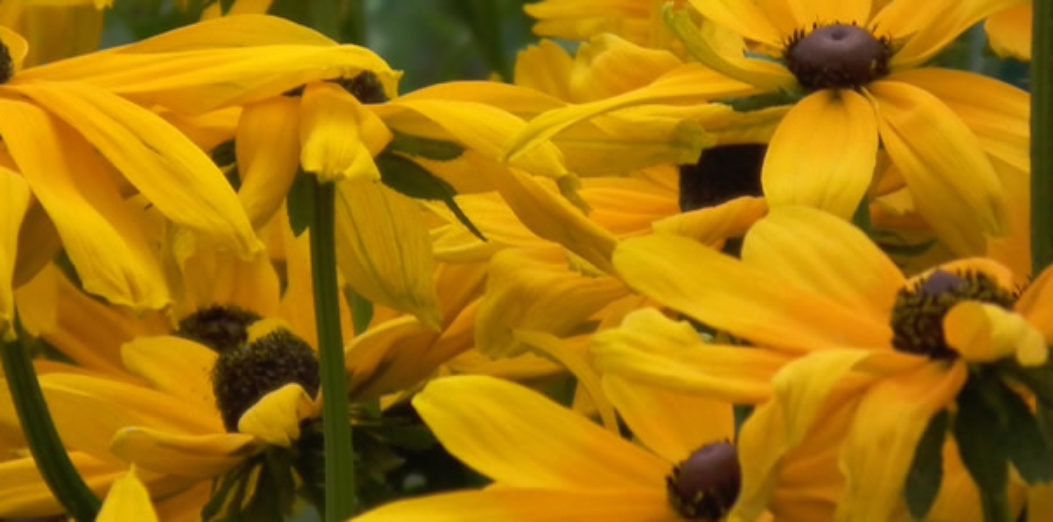
When we refer to chalky soil, we mean soil which has a layer of chalk below it. Chalky soils tend to be:
- flinty (which makes them difficult to dig)
- very free draining (which can make moisture and nutrient retention problematical)
- alkaline (which makes the growing of some plants (e.g. ericaceous) impossible)
The type of soil found on top of the chalk layer (clay or silt for example) will affect how easy the soil is to manage; this topsoil varies from garden to garden and region to region. For example, a clay topsoil over chalk will help improve water retention, but combined with the chalk, can create a really sticky, heavy soil when wet. Peaty topsoils will make the garden easier to dig, but even more free draining and prone to dry out.
The problems of chalky soil are exacerbated where there is only a very shallow depth of soil over the chalk layer below – these tend to have very little soil in which roots can get established, be very free draining and dry. And because they are so free draining, they tend to lack fertility as nutrients get washed out so fast. And, of course, they are extremely alkaline.
There are, however ways to help deal with these problems:
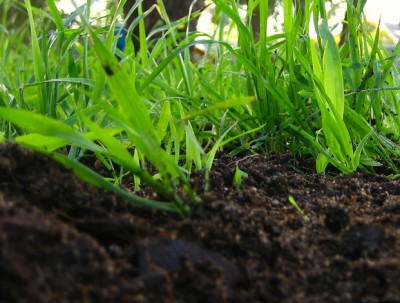 Soil structure
Soil structure
- Improve the soil structure and fertility using plenty of organic matter; add fertiliser to the soil if young plants begin to look sickly, especially when they are young
- Where the soil is really shallow, think about adjusting soil levels to create a deeper layer of decent top soil over the chalk. This might just be a question of adding a good quality top soil / compost mix. Or it might require the construction of raised beds.
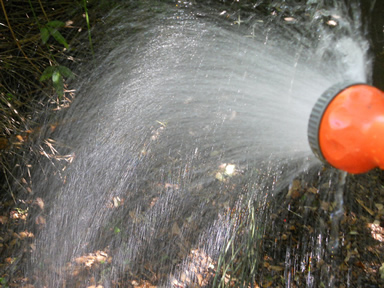 Watering
Watering
- Keep plants well watered. Perhaps consider some form of irrigation system.
- Think about mulching borders to conserve moisture.
Planting
- Don’t try and plant very large plants – smaller plants will be easier to establish
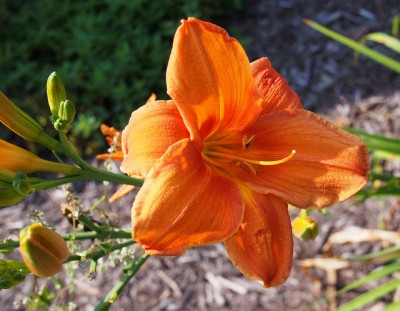 Most importantly, grow the right plants. There is no point trying to grow acid loving plants in chalky soil – they will become chlorotic and sickly very fast and are unlikely to survive. But there are plants that will do well in shallow chalky soils.
Most importantly, grow the right plants. There is no point trying to grow acid loving plants in chalky soil – they will become chlorotic and sickly very fast and are unlikely to survive. But there are plants that will do well in shallow chalky soils.
- Common garden shrubs and perennials such as ceanothus, cistus, daphne forsythia, garrya, rudbeckia, hemerocallis and many others will succeed.
- Chalk soils drain freely and warm up swiftly in spring, so they’re loved by Mediterranean style plants such as Cistus, Lavender, Rosemary, Sage, Fennel, Origanum, and Eryngium
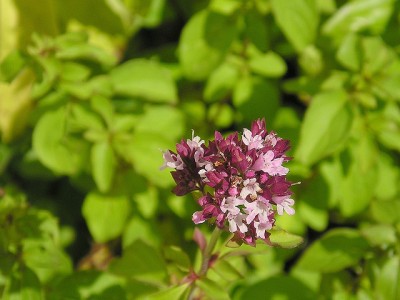 For the same reason, chalk soils are attractive to other plants that don’t like to sit for too long with their feet in the water, such as Hebe, Escallonia, and Choisya. Many native wildflowers and grasses love these conditions too.
For the same reason, chalk soils are attractive to other plants that don’t like to sit for too long with their feet in the water, such as Hebe, Escallonia, and Choisya. Many native wildflowers and grasses love these conditions too.- Vegetables such as the Brassicas can do well in chalk soils, as diseases such as Clubroot cannot establish in a limey environment.
You can find more plant suggestions for chalky soils on the RHS website here.
Need help with what to do next?
Contact us today for an informal chat.
Photo credits: Rudbeckia, Compost, Watering, Hemerocallis, Origanum.